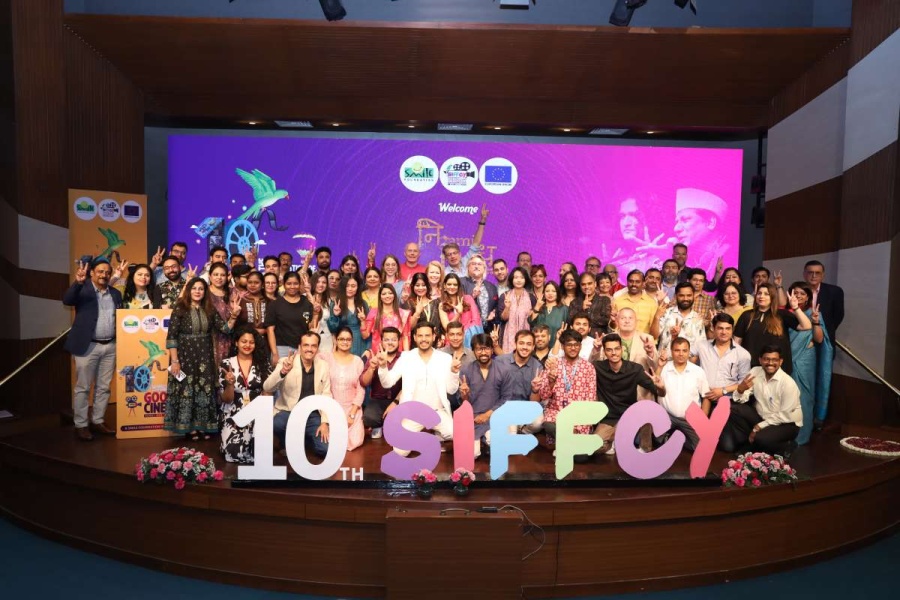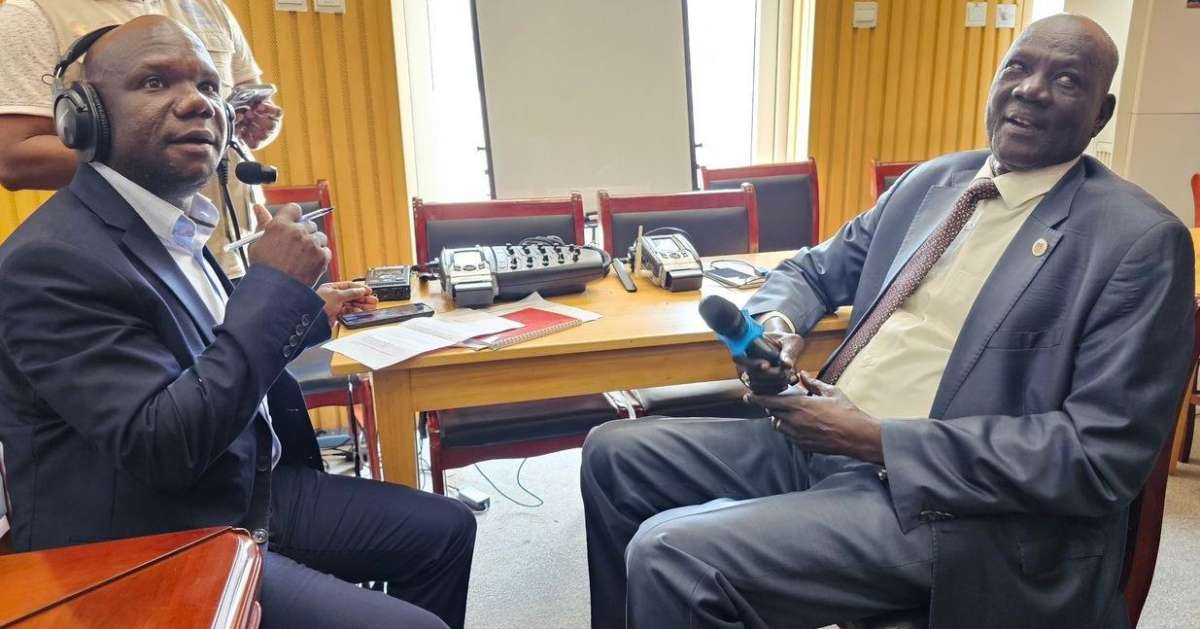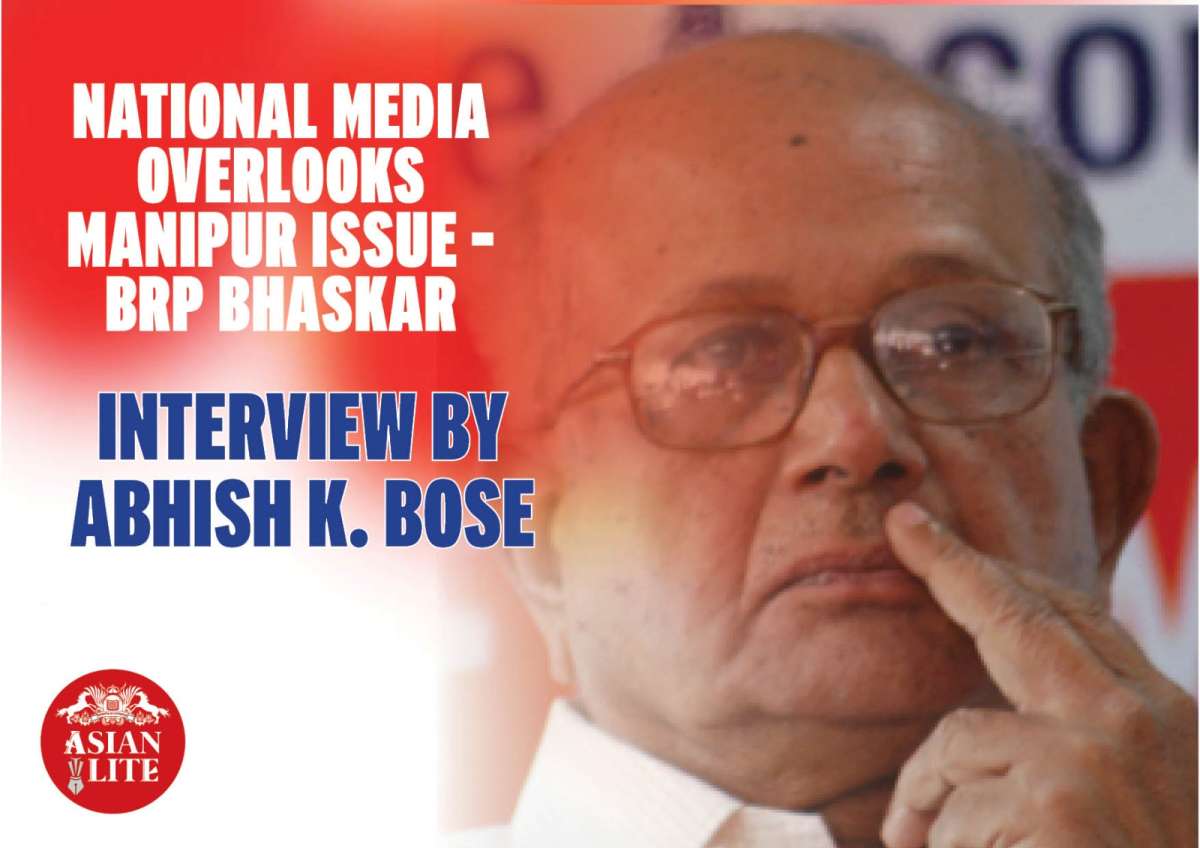Article 21 belongs to the genre of socially committed films, prioritising production quality over meticulous craftsmanship….reports Asian Lite News
Article 21, directed by Lenin Balakrishnan, delves into the poignant theme of upholding the fundamental rights of the marginalized and underprivileged in society. At its core, the film emphasizes the transformative power of education in the lives of those struggling on the streets.
The narrative follows Thamarai, a Tamil immigrant grappling with homelessness, and her two sons, Muthu and Dalapathi. Scrap collection sustains their livelihood, but a chance encounter with a school bag ignites a spark of desire in the younger son to learn. The film chronicles the family’s endeavors, aided by compassionate well-wishers, to secure an education for the children.
Initially, the film provides a detailed glimpse into the family’s daily struggles, hinting at a deeper exploration of their journey. However, the climax pivots towards serving as an awareness campaign, simplifying the story’s complexity and substituting genuine storytelling with an unrealistic optimism. The predictability of certain plot developments also hampers the film’s impact.
Lena delivers a commendable performance as Thamarai, exuding authenticity through her body language and dialogue delivery. The youthful enthusiasm of Leswin and Nandan Rajesh, who portray the children, resonates well with their characters. Yet, occasional artificiality in dialogue delivery detracts from the immersion. Aju Varghese and Joju George contribute effectively, with George’s cameo standing out.
Director Balakrishnan captures the family’s life with intimacy initially, but as the story progresses, the pacing becomes rushed. Notably, the scene depicting the family’s joy at encountering a bathroom showcases the level of detail that could have elevated the entire film. Unfortunately, an overreliance on punch dialogue-driven solutions diminishes the authenticity and depth. Visually and aurally, the movie maintains a superior production quality.
“Article 21” falls into the category of socially committed films that prioritize production quality over thoughtful craftsmanship. It ostensibly champions a noble cause but falters in its execution and narrative finesse.
The heart of the film lies in Article 21-A of the Indian Constitution, mandating free and compulsory education for children aged six to fourteen. Balakrishnan’s debut work seeks to shed light on the lack of effective implementation, without singling out any particular entity for criticism. The film’s journey faced challenges due to the pandemic-induced lockdown during post-production.
Balakrishnan’s intent is clear – to inspire change and raise awareness about Article 21-A’s unfulfilled promise. The film’s genesis stems from a poignant photograph that sparked a reflection on societal disparities. Although the film tackles a pressing issue, it refrains from overt political commentary, instead aiming to foster societal change.

Lena’s remarkable transformation into Thamarai garnered well-deserved praise, while the film benefits from Gopi Sundar’s music and Renganath Ravee’s sound design. The meticulous attention to Lena’s makeup and her immersion into the character’s nuances contribute to the film’s authenticity.
Despite its imperfections, “Article 21” serves as a poignant reminder of the unrealized potential within society’s education system. While not flawless, the film raises pertinent questions and encourages viewers to ponder the meaning of true social change. As director Balakrishnan gears up for his next project, his dedication to meaningful storytelling remains evident, promising potential for future cinematic endeavours.














